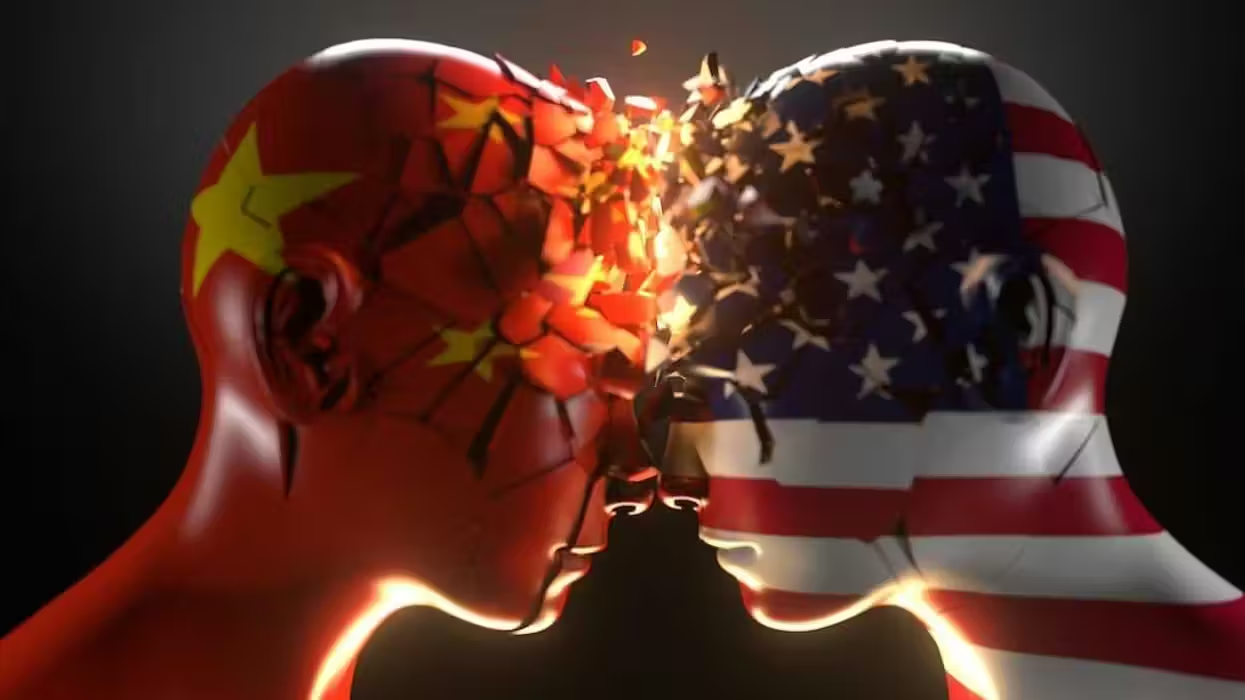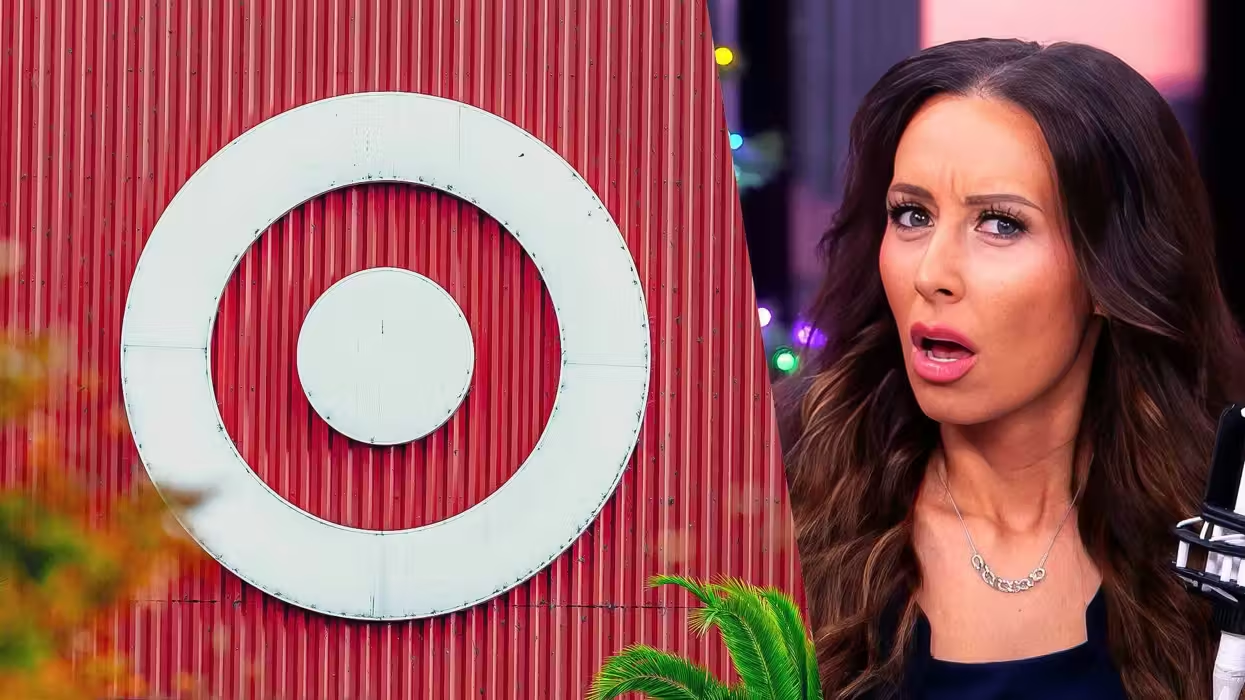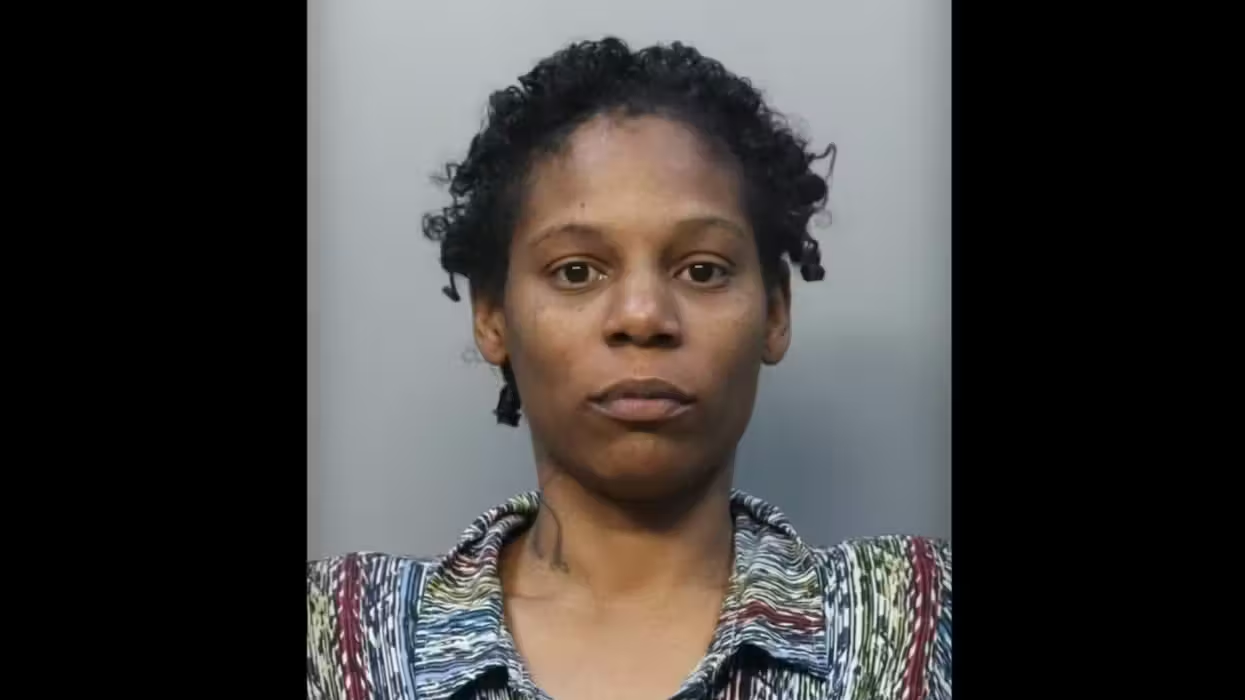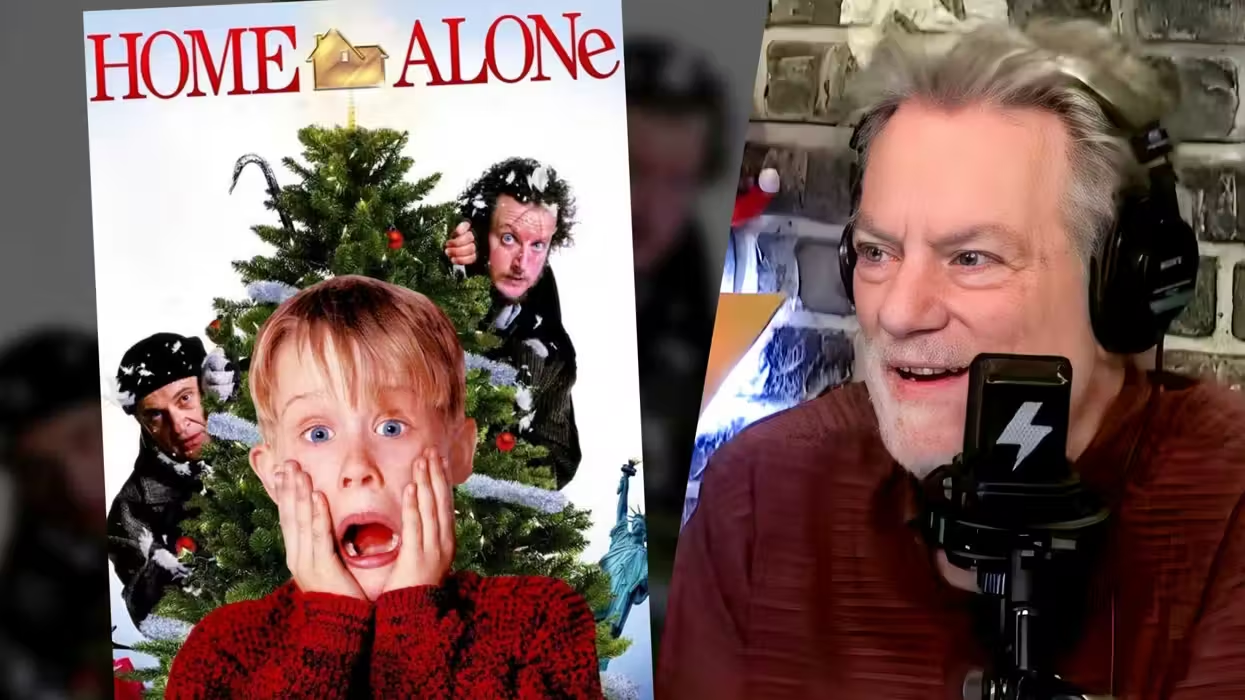STOCKHOLM (TheBlaze/AP) -- The same name, the same nationality and a similar field of research, but only one Tomas Lindahl was awarded the Nobel Prize Wednesday.
Tomas Lindahl, a professor at the microbiology division of Linkoping University in Sweden, got swamped with emails Wednesday congratulating him on winning the Nobel Prize in chemistry.
Except he didn't.
The prestigious award was granted to three scientists including another Tomas Lindahl, also Swedish, but based in Britain.
 Sweden's Tomas Lindahl, left, one of the joint winners of the 2015 Nobel Prize for Chemistry with the Harpal Kumar, CEO of Cancer Research UK as he celebrates with staff members at the Francis Crick Institute in Potters Bar, north London, England, Wednesday, Oct. 7, 2015. (AP/Alastair Grant)
Sweden's Tomas Lindahl, left, one of the joint winners of the 2015 Nobel Prize for Chemistry with the Harpal Kumar, CEO of Cancer Research UK as he celebrates with staff members at the Francis Crick Institute in Potters Bar, north London, England, Wednesday, Oct. 7, 2015. (AP/Alastair Grant)
"I think it's sort of fun actually. To be mixed up with a Nobel Prize winner when I'm doing research in chemistry myself," Tomas Lindahl in Linkoping told Swedish newspaper Aftonbladet, adding that he has been confused with the other Tomas Lindahl for 25 years. .
The paper said the local government in Linkoping sent out a press release congratulating the wrong Lindahl then quickly withdrew it.
The Nobel Prize-winning Lindahl, emeritus group leader at the Francis Crick Institute and Emeritus director of Cancer Research U.K. at Clare Hall Laboratory, shares the prize with American Paul Modrich and U.S.-Turkish scientist Aziz Sancar for research done in the 1970s and '80s involving DNA repair.
Lindahl demonstrated that DNA was not as stable as previously thought, but "decays at a rate that ought to have made the development of life on Earth impossible," a news release from the Royal Swedish Academy of Sciences stated. This led him to discovery what was happening on the molecular level that "counteracts the collapse of our DNA."
Sancar, a professor at the University of North Carolina School of Medicine in Chapel Hill, North Carolina, mapped the process known as "nucleotide excision repair," which is how cells repair ultraviolet damage to DNA.
 Dr. Aziz Sancar and his wife, Gwen, pose for a photo in his office at the University of North Carolina in Chapel Hill, N.C., on Wednesday, Oct. 7, 2015. Sancar and two other scientist won the Noble Prize for chemistry for work done in the 1970's and 1980's in DNA repair. Gwen Sancar, also a professor at UNC, took the call from the Nobel committee at 5 a.m., but says her husband didn't believe her initially. (AP/Allen G. Breed)
Dr. Aziz Sancar and his wife, Gwen, pose for a photo in his office at the University of North Carolina in Chapel Hill, N.C., on Wednesday, Oct. 7, 2015. Sancar and two other scientist won the Noble Prize for chemistry for work done in the 1970's and 1980's in DNA repair. Gwen Sancar, also a professor at UNC, took the call from the Nobel committee at 5 a.m., but says her husband didn't believe her initially. (AP/Allen G. Breed)
The research by Modrich, an investigator at Howard Hughes Medical Institute and professor at Duke University School of Medicine in Durham, North Carolina, showed how cells correct errors during DNA replication at cell division, the news release stated.
Modrich, on vacation in New Hampshire, said he found out about his prize via an email from a colleague.
 Paul Modrich takes a phone call as he sits on the couch with his dog Dover at his vacation home in Rumney, N.H., Wednesday, Oct. 7, 2015. Modrich, an investigator at Howard Hughes Medical Institute and professor at Duke University School of Medicine in Durham, N.C., is one of three scientists who won the Nobel Prize in chemistry on Wednesday for showing how cells repair damaged DNA, work that has inspired the development of new cancer treatments. (AP/Mary Schwalm)
Paul Modrich takes a phone call as he sits on the couch with his dog Dover at his vacation home in Rumney, N.H., Wednesday, Oct. 7, 2015. Modrich, an investigator at Howard Hughes Medical Institute and professor at Duke University School of Medicine in Durham, N.C., is one of three scientists who won the Nobel Prize in chemistry on Wednesday for showing how cells repair damaged DNA, work that has inspired the development of new cancer treatments. (AP/Mary Schwalm)
"Stockholm didn't get my number, I guess, until later in the morning," he told the Associated Press.
But Nobel officials did reach him "eventually, so I think it's real," he said with a chuckle.

 Sweden's Tomas Lindahl, left, one of the joint winners of the 2015 Nobel Prize for Chemistry with the Harpal Kumar, CEO of Cancer Research UK as he celebrates with staff members at the Francis Crick Institute in Potters Bar, north London, England, Wednesday, Oct. 7, 2015. (AP/Alastair Grant)
Sweden's Tomas Lindahl, left, one of the joint winners of the 2015 Nobel Prize for Chemistry with the Harpal Kumar, CEO of Cancer Research UK as he celebrates with staff members at the Francis Crick Institute in Potters Bar, north London, England, Wednesday, Oct. 7, 2015. (AP/Alastair Grant)
 Dr. Aziz Sancar and his wife, Gwen, pose for a photo in his office at the University of North Carolina in Chapel Hill, N.C., on Wednesday, Oct. 7, 2015. Sancar and two other scientist won the Noble Prize for chemistry for work done in the 1970's and 1980's in DNA repair. Gwen Sancar, also a professor at UNC, took the call from the Nobel committee at 5 a.m., but says her husband didn't believe her initially. (AP/Allen G. Breed)
Dr. Aziz Sancar and his wife, Gwen, pose for a photo in his office at the University of North Carolina in Chapel Hill, N.C., on Wednesday, Oct. 7, 2015. Sancar and two other scientist won the Noble Prize for chemistry for work done in the 1970's and 1980's in DNA repair. Gwen Sancar, also a professor at UNC, took the call from the Nobel committee at 5 a.m., but says her husband didn't believe her initially. (AP/Allen G. Breed)
 Paul Modrich takes a phone call as he sits on the couch with his dog Dover at his vacation home in Rumney, N.H., Wednesday, Oct. 7, 2015. Modrich, an investigator at Howard Hughes Medical Institute and professor at Duke University School of Medicine in Durham, N.C., is one of three scientists who won the Nobel Prize in chemistry on Wednesday for showing how cells repair damaged DNA, work that has inspired the development of new cancer treatments. (AP/Mary Schwalm)
Paul Modrich takes a phone call as he sits on the couch with his dog Dover at his vacation home in Rumney, N.H., Wednesday, Oct. 7, 2015. Modrich, an investigator at Howard Hughes Medical Institute and professor at Duke University School of Medicine in Durham, N.C., is one of three scientists who won the Nobel Prize in chemistry on Wednesday for showing how cells repair damaged DNA, work that has inspired the development of new cancer treatments. (AP/Mary Schwalm)






